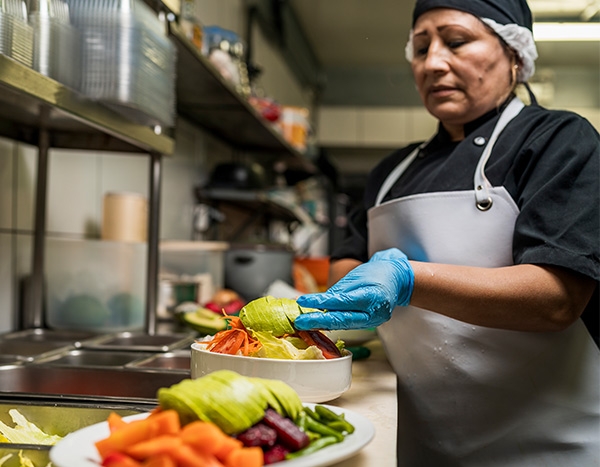This course is separated into six modules of learning:
Module One: Introduction to Food Law, Safety and Hygiene
This module presents an overview of food safety, including key definitions, legal requirements, legislation governing safe food practices, and the importance of adhering to guidelines to prevent foodborne illnesses. It also explores the repercussions of non-compliance with food laws.
Module Two: Microbiological, Physical, Chemical and Allergenic Hazards
Module two delves into food contamination hazards, including microbiological, physical, chemical, and allergenic risks. It covers causes and symptoms of food-borne illnesses, allergens, intolerances, cross-contamination, and categorization of high-risk and low-risk foods.
Module Three: Safe Food Storage & Preparation
This module focuses on establishing safe supplier relationships, delivery procedures, food storage practices, stock handling, rotation methods, and safe food preparation techniques to minimize contamination, bacterial growth, and foodborne illness risks.
Module Four: Food Handler Hygiene & Premises Cleaning
Module four emphasizes personal hygiene standards for food handlers, government guidelines for Covid-19 compliance, safe cleaning practices, pest awareness, and food-safe pest control procedures to maintain a sanitary food-service environment.
Module Five: Food Premises & Equipment Suitability and Layout
Discussing the legal obligations of food operators, cleaning responsibilities of food handlers, ideal food service environments, necessary equipment for safe food processing, kitchen layout considerations, storage facilities, and waste management in food service establishments.
Module Six: Due Diligence – Developing a Plan for Food Safety & Hygiene Compliance
Module six guides on creating and implementing a "Due Diligence" plan based on a Food Safety Management System to ensure food safety compliance. It includes the principles of Hazard Analysis and Critical Control Points (HACCP) for effective food safety management.




